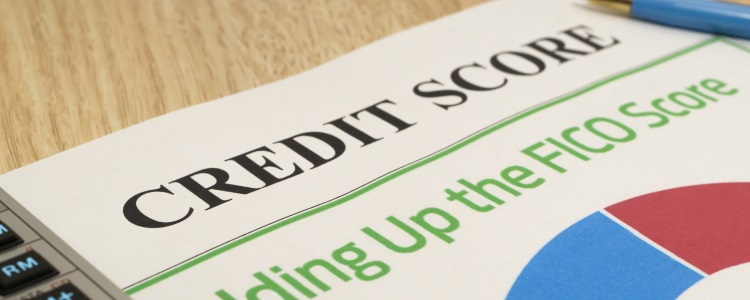There are many reasons why your credit is an important part of your financial well being. Above all, your credit affects your ability to get approved for future lines of credit (and on what terms). It can also affect your interest rates on credit accounts, how much you pay for insurance, your job prospects, and where you may be able to live.
For all these reasons and more, having healthy credit is something to work for. Establishing positive credit is a goal that takes time and dedication to achieve; maintaining it is a lifelong project. When making your finances easier to navigate is the end game, keeping your credit in good shape is worth the effort.
These three tips are a great place to start if you want to improve or establish your credit.
Understand and Keep Up with Your Credit
The first step toward good credit is to understand how it works, including the factors that make up your credit score and what’s in your credit reports.
Your credit score, a three-digit number that usually (in the case of FICO) ranges from 300 to 850, represents your creditworthiness at a point in time. It changes constantly based on your credit-related activity. The factors that make up your score typically include: your payment history (35 percent), amounts owed (30 percent), length of credit history (15 percent), diversity of credit accounts (10 percent), and amount of new credit (10 percent).
The three major credit bureaus in the US are Experian, Equifax, and TransUnion. Each agency compiles a credit report for you and, because they are independent companies, each report can be slightly different. By law, you are entitled to get a free copy of your report from each bureau every 12 months. You can request these at www.annualcreditreport.com.
You’ll want to review your credit reports regularly to gain a better understanding of how it works. You can also look for errors (that you can have corrected) that could be bringing down your score, as well as for signs of credit fraud or identity theft.
Make All of Your Payments on Time
 Your payment history makes up 35 percent of your credit score, making it the single most important factor. This means that, above all else, you need to be making your payments on all bills and credit accounts on time if you want to establish strong credit.
Your payment history makes up 35 percent of your credit score, making it the single most important factor. This means that, above all else, you need to be making your payments on all bills and credit accounts on time if you want to establish strong credit.
Even one 30-day late payment can have a big negative impact on your credit score and can remain on your credit reports for up to seven years. So, make sure all of your payments are included in your budget. A good tip: some people find it helpful to set up automatic payments when it’s possible.
Keep Credit Card Balances Low or Eliminated
Next up on the credit totem pole is something FICO calls "amounts owed," which makes up 30 percent of your credit score. This factor looks at the amount of your credit card balances in relation to the amount of your credit limits, known as your credit utilization ratio.
To find your overall credit utilization ratio, simply add up all of your card balances and divide that number by the sum of all of your credit limits. For example, if you have $6,000 of available credit and carried a $1,500 balance, your utilization would be 25 percent (1,500 divided by 6,000 equals 0.25, or 25 percent).
Most experts recommend that you keep your credit utilization ratio at 30 percent or lower. When it tops that mark, it tends to negatively impact your credit scores. In a perfect world, you should pay off your credit card balances in full every month.
If your utilization ratio is currently over 30 percent, getting your balances below that mark can go a long way in improving your credit scores. Make sure your budget includes money dedicated to reducing your debt rather than making minimum payments each month.
The Bottom Line
While there are many ways to build up your credit, these three tips provide a foundation to start on. You’ll be off on the right foot if you understand how it works, make all of your payments on time, and keep your credit card balances low.
If you need a car, taking out an auto loan is another way to build your credit. With the help of Auto Credit Express, you won't have to worry about finding financing on your own, either. We connect car buyers to local dealerships that are equipped to handle most types of credit situations.
Our service is free and puts you under no obligation, so you have nothing to lose. Get started right now by completing our secure car loan request form.



















